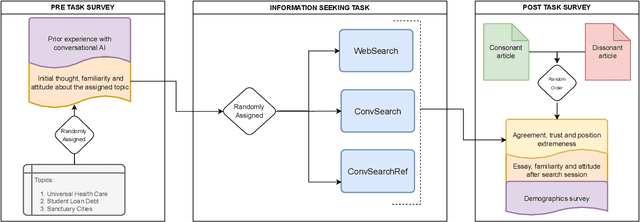Generative Echo Chamber? Effects of LLM-Powered Search Systems on Diverse Information Seeking
Paper and Code
Feb 10, 2024



Large language models (LLMs) powered conversational search systems have already been used by hundreds of millions of people, and are believed to bring many benefits over conventional search. However, while decades of research and public discourse interrogated the risk of search systems in increasing selective exposure and creating echo chambers -- limiting exposure to diverse opinions and leading to opinion polarization, little is known about such a risk of LLM-powered conversational search. We conduct two experiments to investigate: 1) whether and how LLM-powered conversational search increases selective exposure compared to conventional search; 2) whether and how LLMs with opinion biases that either reinforce or challenge the user's view change the effect. Overall, we found that participants engaged in more biased information querying with LLM-powered conversational search, and an opinionated LLM reinforcing their views exacerbated this bias. These results present critical implications for the development of LLMs and conversational search systems, and the policy governing these technologies.
 Add to Chrome
Add to Chrome Add to Firefox
Add to Firefox Add to Edge
Add to Edge